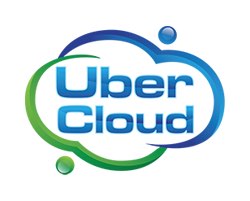 Our friends at the UberCloud have published the 2018 edition of their Compendium of Cloud HPC Case Studies.
Our friends at the UberCloud have published the 2018 edition of their Compendium of Cloud HPC Case Studies.
The goal of the UberCloud Experiment is to perform engineering simulation experiments in the HPC cloud with real engineering applications in order to understand the roadblocks to success and how to overcome them. The Compendium is a way of sharing these results with the broader HPC community.
These case studies deal with a variety of use cases in a diverse array of fields:
- CFD Simulation of Airflow within a Nasal Cavity using STAR-CCM+
- Ropax Ferry Performance in the Cloud with NUMECA FINETM/Marine
- Implantable Planar Antenna Simulation with ANSYS HFSS in the Cloud
- Impurities Transport in a Heat Exchanger Using OpenFOAM
- Cardiac Simulator to Study Drug Toxicity
- Studying Drug-induced Arrhythmias of a Human Heart with Abaqus
- Kaplan turbine flow simulation using OpenFOAM in the Advania Cloud
- Peptide Benchmark Using LAMMPS Molecular Dynamics
- HPC Cloud Simulation of Neuromodulation in Schizophrenia
- Maneuverability of a KRISO Container Ship Model with NUMECA FINETM/Marine
UberCloud is the online community and marketplace where engineers and scientists discover, try, and buy Computing Power as a Service, on demand. Engineers and scientists can explore and discuss how to use this computing power to solve their demanding problems, and to identify the roadblocks and solutions, with a crowd-sourcing approach, jointly with our engineering and scientific community.
Our efforts are paying off. Based on the experience gained over the past years, we have now increased the success rate of the individual experiments to 100%, as compared to 40% in 2013 and 60% in 2014. In 2015, based on our experience gained from the previous cloud experiments, we reached an important milestone when we introduced our new UberCloud HPC software container technology based on Linux Docker containers. Use of these containers by the teams dramatically improved and shortened experiment times from an average of three months to just a few days.
 Containerization drastically simplifies the access, use and control of HPC resources whether on premise or remotely in the cloud. Essentially users are working with a powerful remote desktop in the cloud that is as easy and familiar to use as their regular desktop workstation. Users don’t have to learn anything about HPC, nor system architecture, nor cloud to for their projects. This approach will inevitably lead to the increased use of HPC for daily design and development, even for novice HPC users, and that’s what we call democratization of HPC. The latest round of UberCloud Experiments is well underway and new teams are constantly signing up to participate in the next round. This is a testimony to the success of the collaborative model we have created – crowdsourcing that brings the benefits of HPC as a Service to an underserved population of small and medium size enterprises that, until recently, had no way to access this transformative, enabling technology.
Containerization drastically simplifies the access, use and control of HPC resources whether on premise or remotely in the cloud. Essentially users are working with a powerful remote desktop in the cloud that is as easy and familiar to use as their regular desktop workstation. Users don’t have to learn anything about HPC, nor system architecture, nor cloud to for their projects. This approach will inevitably lead to the increased use of HPC for daily design and development, even for novice HPC users, and that’s what we call democratization of HPC. The latest round of UberCloud Experiments is well underway and new teams are constantly signing up to participate in the next round. This is a testimony to the success of the collaborative model we have created – crowdsourcing that brings the benefits of HPC as a Service to an underserved population of small and medium size enterprises that, until recently, had no way to access this transformative, enabling technology.
In this video, Wolfgang Gentzsch from The UberCloud describes a pair of projects paving the way for Personalized Medicine in the Cloud.




